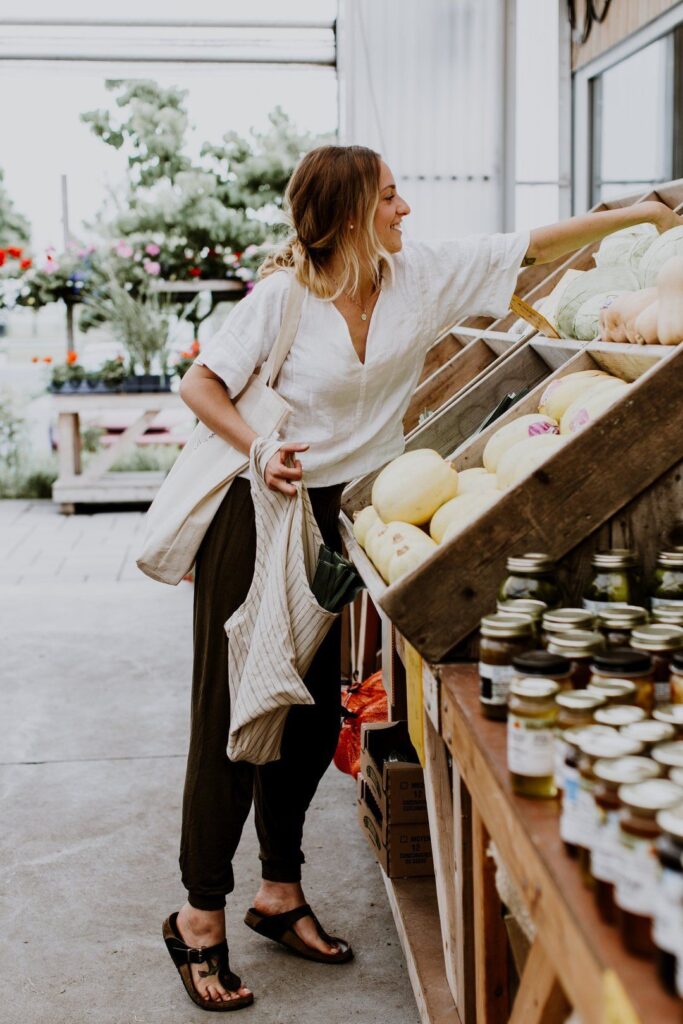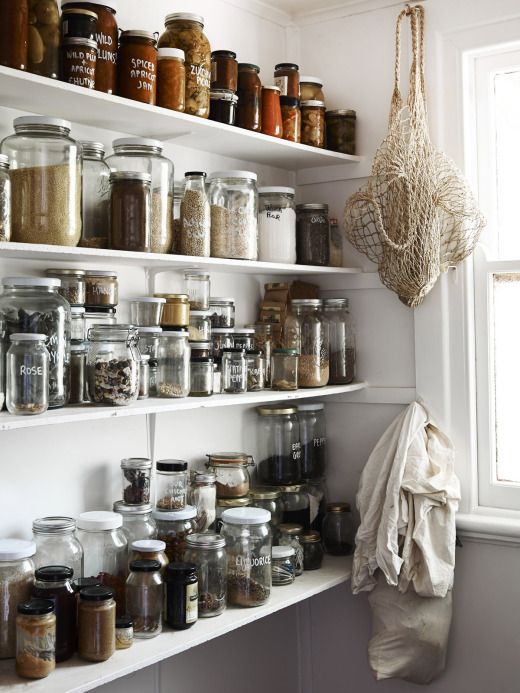In the early 2000s, the low-waste movement began and has gained popularity in recent times. This popularity influenced the world’s first plastic-free supermarket in 2018 and smaller low-waste shops to open. With more people interested in low waste and sustainability, this is a great time to get ahead in starting your own low-waste business.
Founder of Good Intent, Alex Gamboa Grand, was kind enough to give us insight into starting a low waste shop. Good Intent is a low-waste, ethical shop that believes in our impact as individuals, like making small yet impactful changes and voting with our dollar. They believe in impactful action, rather than perfection.
“We’re here to demonstrate that low waste living is for everyone, regardless of your age, culture, or socioeconomic status.”
– Good Intent
How did you become knowledgeable about the zero-waste lifestyle? What made you passionate enough to start your business?
For most of my life, my understanding about what I could do to benefit the environment was limited to recycling, not littering, trash cleanups, and reducing carbon emissions. I started becoming aware of companies that were making an effort to be ethical and sustainable. I learned about the power of using business and our role as consumers. My friend and now co-founder Lindsay and I would share our favorite brands and products.
We learned hard truths about the production, consumption, and ultimate disposal of plastics, clothing, food, electronics, and plenty of other items we carelessly use daily. We know that we need wide-scale, progressive decision-making, and action at the highest levels of government and industry. Still, in the meantime, it didn’t sit right with us to wait for other people to do the right thing, hopefully. We wanted to give ourselves agency and ensure that we were doing our best to minimize our harm to the environment and contributions to the climate crisis. We also knew that those decisions would ultimately add up, especially if we got more people on board. We decided to launch Good Intent to harness all the good intentions of people who care about climate change and want to do something about it.
What do you believe is the most important when growing a business?
- Connecting with your community
- Population size/ traffic in the city you reside
- Social media engagement
- Having a team that is passionate about your business

These topics are essential, but I’d imagine a business doing ok without having all of them. Especially the population size in your city if you happened to live in an engaged local community or have a particularly robust online presence. We’ve been fortunate to have all of these at play. I’d say part of the reason is that energy, enthusiasm, and momentum all matter. Each of these topics feeds into that.
The most critical would be having a passionate team. Our passion for this movement and its impact when more people take steps to reduce their waste keep us putting in the hours, creating more content, and sharing our work with the people we encounter. I think that energy ultimately spreads to the people we connect with within our community, social media, and our customers.
What process did your business take to reach your ideal audience?
We started building our blog and social media presence close to a year before launching our actual online shop. We shared a lot of positive and educational content geared toward those who weren’t necessarily zero waste experts yet. We knew that we wanted to be a go-to resource for all things related to waste reduction and sustainable living above all else. So I think people found that valuable. We were able to generate a decent following by the time we launched. It helped that Lindsay was great at creating awesome infographics and beautiful images, making our content easy on the eyes. Also, we engaged with local zero waste groups like the Zero Waste PDX Facebook group and connected with community groups in Portland and San Diego, where Lindsay lived at the time.
Are there steps you used to find the best ethical and zero-waste wholesalers?

We’ve found excellent wholesalers in a variety of ways. Some of them reached out to us, some were recommended to us, and others have been through Instagram. You can also find wholesalers by searching for a specific solution and combing through options. We chose companies based on various factors like the product’s efficacy, their proximity to us, plastic-free packaging/ materials, clean ingredients, branding, BIPOC or woman-owned, third-party certifications, practicability, price, and if those products are the most sustainable options available.
We’ve held off on adding new brands that sold products we knew would be popular, but we did not feel confident about the materials. Sometimes you have to be patient and wait for a better option to come out, or even suggest to one of your existing vendors to produce it. We never want to feel like we’re compromising or taking the easy way out.
Many ethical businesses find it hard to sell reasonably priced products while covering production costs. What is the biggest challenge finance-related that you have had to overcome or that you are still overcoming?
Our goal is to make this lifestyle more inclusive and accessible, and ideally, that includes more accessible pricing. We want to challenge the assumption that sustainable living has to be more expensive. You can make a strong case that low-waste living saves you money because you’re ultimately consuming less and replacing frequent purchases of disposables with high-quality reusables that will last for years or a lifetime. There are many swaps and changes that don’t cost a thing. At the same time, we’re also aware that the price points of many of our products are higher than conventional alternatives, and that can be hard for some to swallow. So we try to keep prices low, especially for fundamental essentials, but that does result in tighter margins and slower growth for us.
What advice would you give someone who is starting their zero-waste business from scratch?
We like to think of ourselves as the filters for our customers. There’s so much greenwashing out there and so many products that don’t work. We want to make it easier for our customers to find products that are helpful and minimize waste. The process of vetting every brand you buy something from is too tedious for most people to do, but it matters.
Our recommendation to other low-waste businesses is: ask vendors tough questions like where they source their ingredients/materials, what packaging they use for their products, and the actual end-of-life disposal of their products. It’s tempting to assume that a company that touts itself as ‘environmentally friendly’ will meet all of your other specifications. Still, you’d be surprised at how often that’s not the case. It’s critical to do your research on the brands.
Love Good Intent just as much as us?
Use code
CADALOVE
for 10% off
Don’t be afraid to make requests! Your vendors want to keep you happy because whether they keep your business may significantly impact their bottom line. Many can accommodate requests like plastic-free shipping materials, product packaging, or even modifications to the product itself. Your work on the front end will save unintended waste and ensure that your customers can trust your brand.
We thank Alex for her contributions and insights. Will you be opening a low waste shop in the future? Let us know in the comments and on our Instagram @cada_culture.
While you’re here, catch up on our other blogs and let us know your thoughts!

